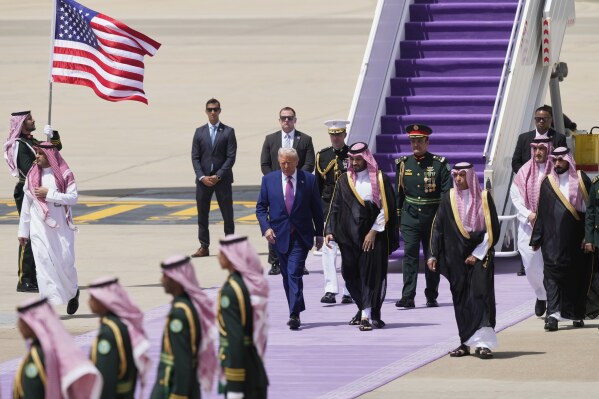By Iliya Kusa
First, the Saudis managed to arrange a meeting between the US President and the de facto head of Syria, Ahmad al-Sharaa, convincing the US to lift sanctions on Syria. In return, they promised to push Damascus toward normalizing relations with Israel and to keep former Syrian militants on a short leash through economic stabilization.
Second, Trump used the Saudi platform to give an optimistic comment about talks with Iran, stating he wants to make a deal with Iran and help it become a “great country.” The nuclear deal negotiations are expected to resume soon. These talks benefit the Saudis because they could ease regional tensions, de-escalate the confrontation between Iran and Israel, and allow focus on economic development.
Third, Saudi Arabia will purchase weapons from the US worth $142 billion. They also committed to investing $20 billion in AI development and energy infrastructure in the US. Additionally, companies like Google, Oracle, Salesforce, and Uber will invest $80 billion in technology sectors in both the US and Saudi Arabia. US companies Parsons, AECOM, Jacobs, and Hill International will invest $2 billion in development projects in Saudi Arabia, while the Saudi pharmaceutical company Shamekh IV Solutions will build a $5.8 billion factory in Michigan. American GE Vernova will sell gas turbines and energy equipment worth $14 billion to Saudi Arabia.
Fourth, Trump essentially sent a signal that regional countries should take the initiative and shape a new post-American order in the Middle East. At the same time, he made no secret that the US is betting on the Arabian Gulf monarchies as the most competent and resourceful players.
Trump did not rename the Persian Gulf to the Arabian Gulf as he had promised before the trip. According to media reports, this was due to a strong reaction from Iran, which threatened to derail the nuclear deal negotiations. The name of the Gulf holds great historical and cultural significance for them.
Moreover, there were no breakthroughs on the Palestinian issue. Until it is resolved, Saudi Arabia will not want to establish diplomatic relations with Israel just like that. It was expected that the topic would be raised and that the US might take steps in this direction, but as we see, no news on that front.
Finally, Trump said nothing about Yemen. The situation there remains difficult, and the conflict unresolved. For Saudi Arabia, a freeze is an acceptable option. The US has essentially stopped the war with the Houthis themselves. However, the Houthi issue remains relevant for both Israel and the Saudis.





















